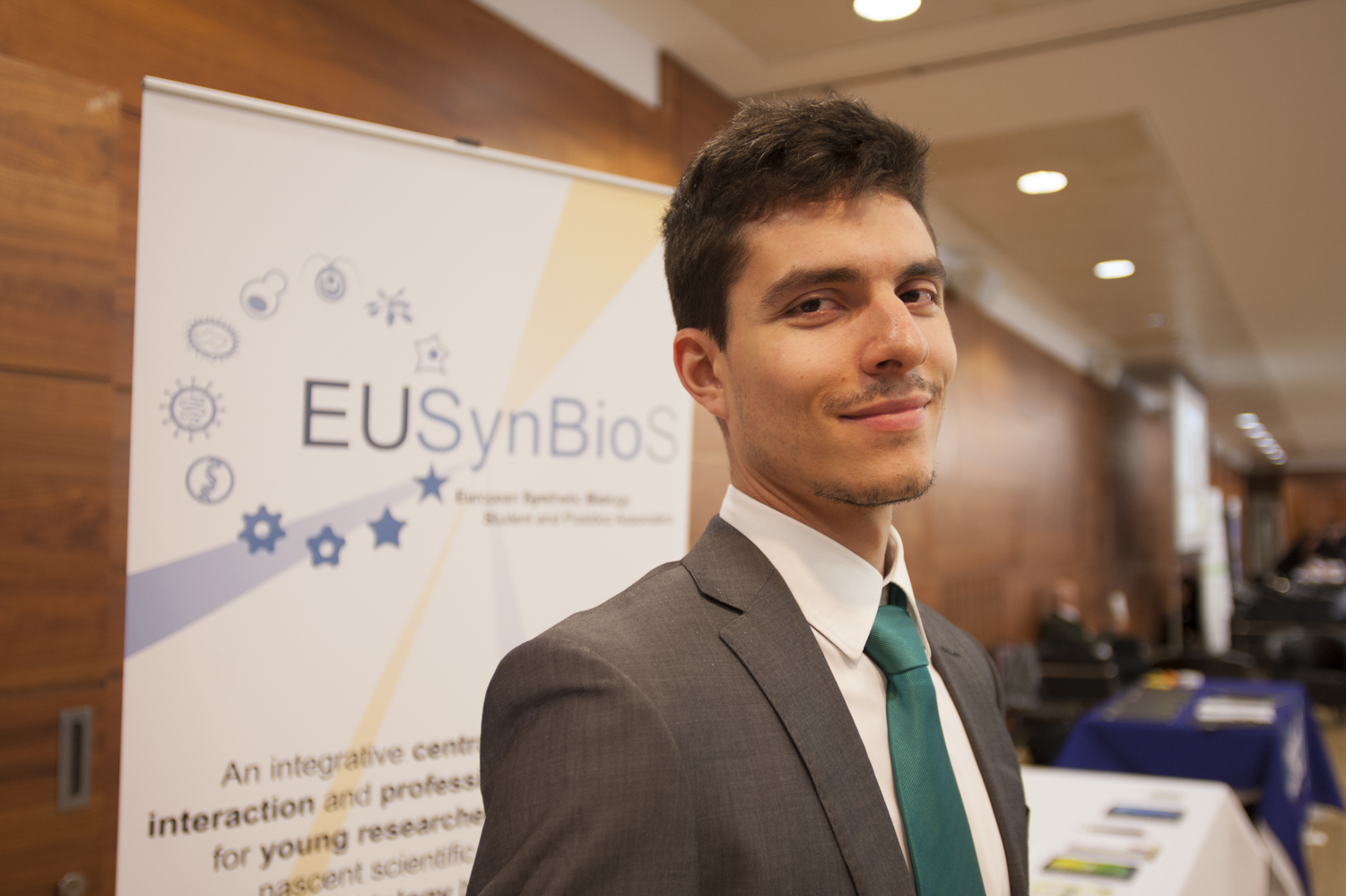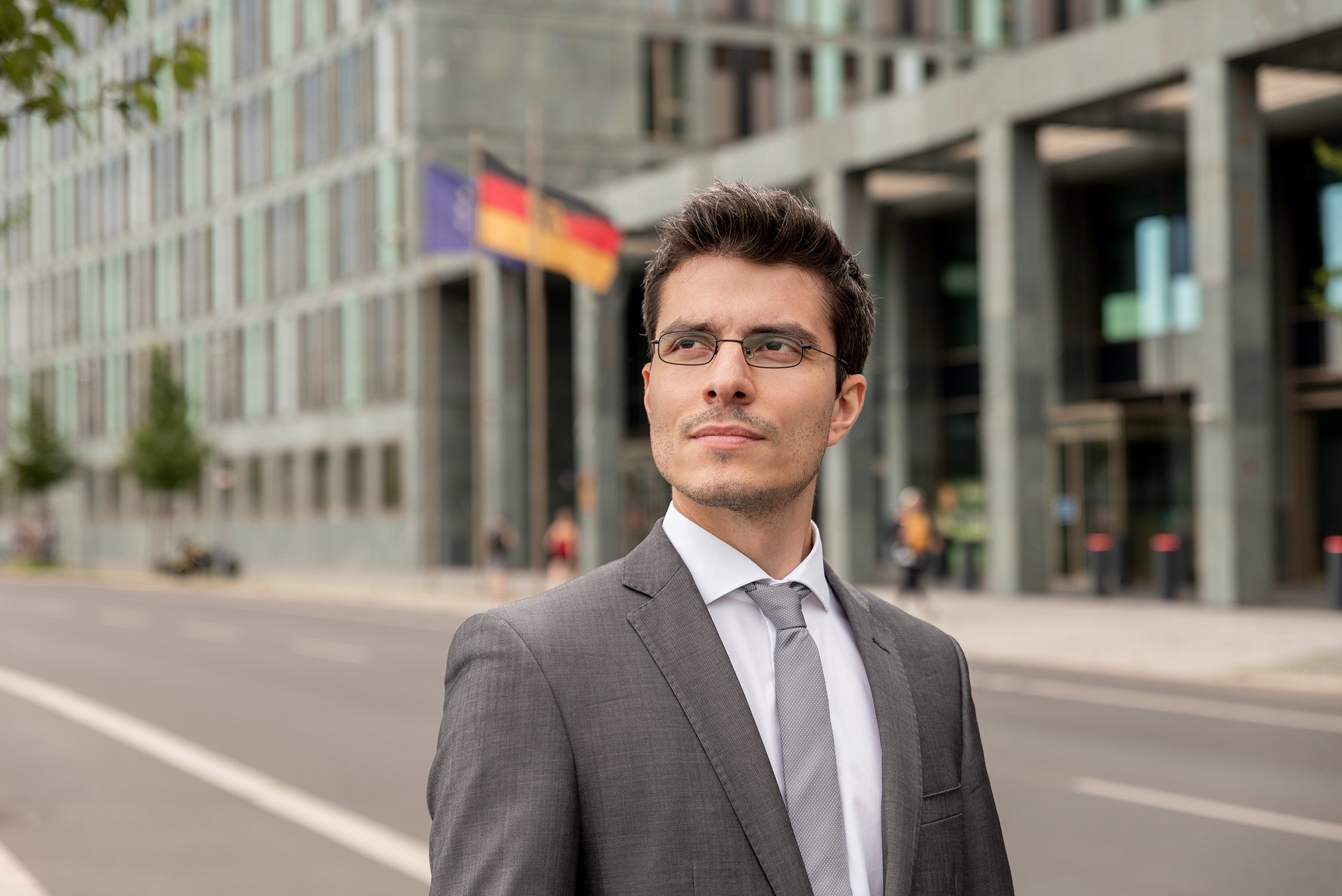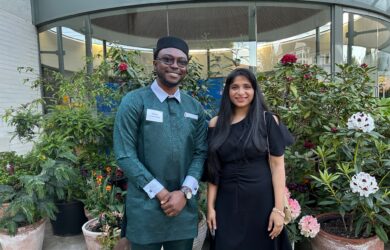
Christian Boehm develops new resource for young researchers in synthetic biology.
While the field has grown well connected at the level of principal investigators, it lacked a sustainable forum for exchange and communication at the level of students and young researchers.
Christian Boehm
A Gates Cambridge Scholar has founded a European association of young researchers dedicated to fostering a community of synthetic biology students and postdocs, providing a central resource for interaction and professional development.
The initiative has already attracted hundreds of members and won enthusiastic feedback from those in a fast-developing field.
Christian Boehm [2013], who is a PhD candidate in Plant Synthetic Biology, set up the European Association of Students and Postdocs in Synthetic Biology (EUSynBioS) six months ago.
He says: "Over the past decade, synthetic biology has matured in a remarkable way: starting from a set of activities pursued by a small number of research groups, the discipline has become widely recognised for its potential to transform bioindustry and tackle major challenges of the 21st century such as climate change, energy and global health. Today, synthetic biology is represented in several dedicated journals, graduate programmes, research centres, policy initiatives and specialised businesses. However, the rapid growth of synthetic biology has provoked questions about the field’s vision, identity and boundaries in going forward."
Christian identified a need to develop a sense of community among researchers to help promote the field further. "Community in particular has repeatedly been highlighted as a key factor in successful future development of the discipline across discussions at the Sixth International Meeting on Synthetic Biology and the European Research Area Network’s strategic vision for synthetic biology published in 2014," he says. "While the field had grown well connected at the level of principal investigators, it lacked a sustainable forum for exchange and communication at the level of students and young researchers."
In this context, the EUSynBioS initiative has fallen on fertile ground. “This Association fills a clear gap in the development of the discipline in Europe and it is bound to play a key role in the emergence of the new generation of Synthetic Biology professionals that we so badly need in the EU,” says Victor de Lorenzo, Professor of Research at the National Centre of Biotechnology of the Spanish Research Council.
His colleague Birger Lindberg Møller, Professor of Plant Biochemistry at University of Copenhagen, adds that EUSynBioS will “be seen as a primary interface for interaction by the growing communities of young synthetic biologists abroad, and spark new opportunities for exchange and collaboration beyond the borders of the European Union”.
EUSynBioS already has several hundred students and postdoctoral researchers based in 15 European countries, is supported by an Advisory Board composed of 20 accomplished principal investigators, and works closely with major partner organisations across the globe.
Encouraged by research council representatives attending an OpenDiscussion session chaired by Christian at the recent SynBioBeta London 2015 conference, EUSynBioS is now working towards an international symposium for the young synthetic biology community.
Christian says: “The realisation of the transformative potential inherent in synthetic biology lies in the hands of the next generation of researchers. Our goal is to support young synthetic biologists by encouraging international exchange and creating new opportunities for them to be better involved in shaping the future of their discipline.”
Photo credit: SynBioBeta

Christian Boehm
- Alumni
- Germany
- 2013 PhD Plant Sciences
- Christ's College












